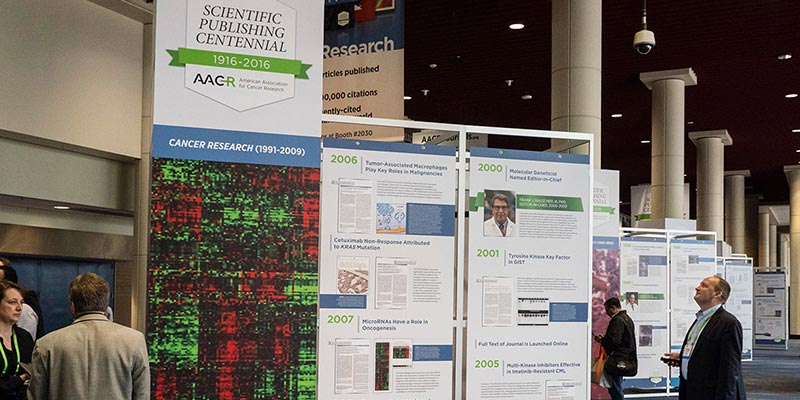
A Century of Disseminating World-Class Cancer Research
In 1916, the Editorial Committee of the AACR launched The American Journal of Cancer, the first cancer journal published in English. Over the past hundred years, the AACR scientific publishing program has provided a forum for the most innovative cancer science, expanding to eight journals to encompass the full spectrum of basic, translational, clinical, and epidemiological research.
Celebrating the AACR’s Scientific Publishing Centennial
AACR journals commemorated a century of scientific publishing in 2016 with a special walk-through exhibit at the Annual Meeting in New Orleans. The display featured classic historical articles from the first few decades of AACR publications, highlighting the AACR’s role in establishing the foundations of cancer science. Landmark studies published in the early editions of AACR journals included the following:
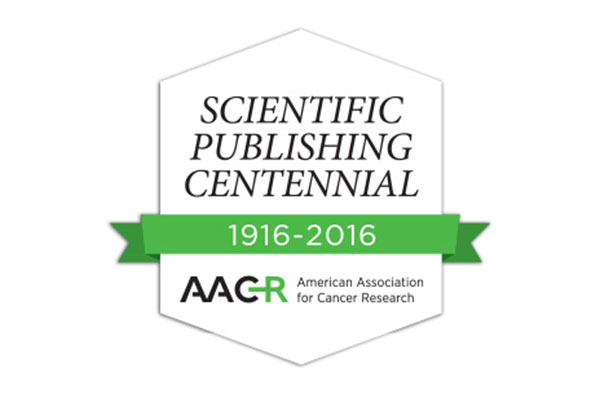
Cancer Research: The Voice of the Cancer Community for 75 Years
The AACR also marked the 75th anniversary of its flagship journal, Cancer Research, in 2016. This milestone was commemorated with a special historical publication distributed to attendees of the Annual Meeting. The journal also published commentaries throughout the year on seminal articles published in the journal that arguably formed the basis of modern cancer research, including the following:
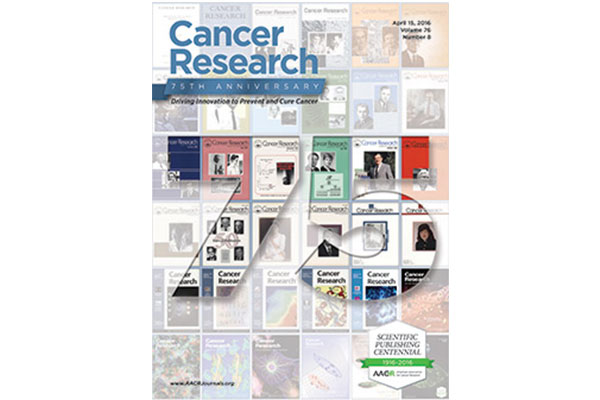
Cancer Immunology Research: Exploring the Newest Frontier of Cancer Science
While celebrating its primary role in the history of cancer research, the AACR continued to define the rapidly expanding frontiers of cancer immunology and immunotherapy through its newest journal, Cancer Immunology Research. Led by new Editors-in-Chief Robert D. Schreiber, PhD, and Philip D. Greenberg, MD, the journal was ranked 20th out of 213 oncology journals with regard to impact factor in its fourth year of publication.
AACR Journals Online
As part of its commitment to the most effective dissemination of high-quality cancer science worldwide, the AACR migrated to a platform that improved the readability and ease of navigation for all of its journals in 2016. Interest in the online journals continued to increase, as journal articles were viewed nearly 71 million times in 2016.

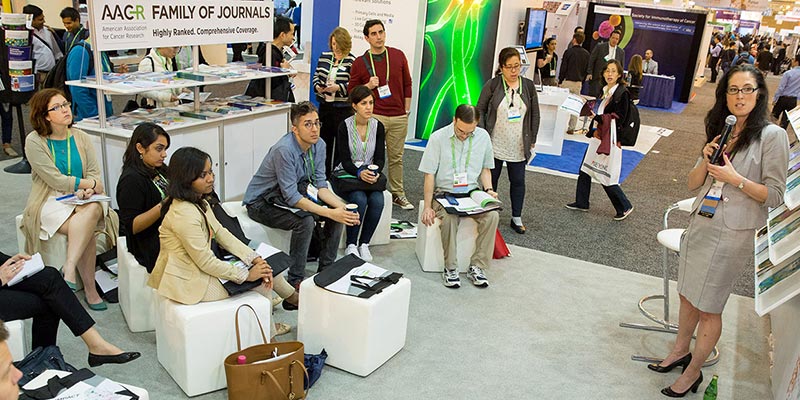
Editors-in-Chief
The AACR thanks its editors-in-chief for their hard work and stewardship of its scientific publishing program.
Cancer Discovery
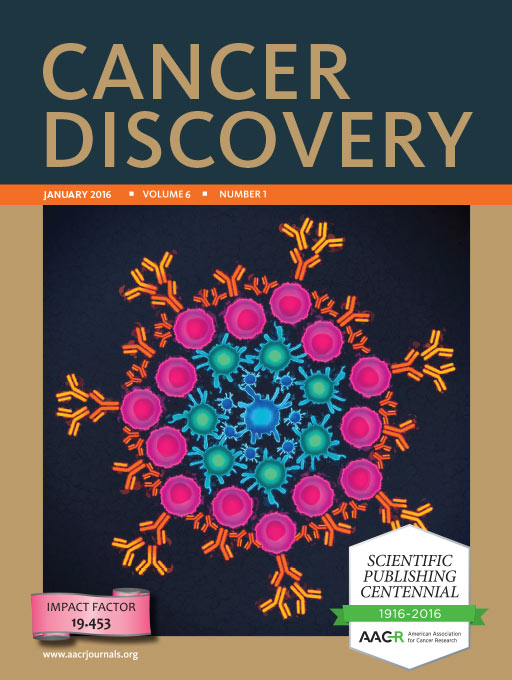

Lewis C. Cantley, PhD, FAACR
Sandra and Edward Meyer Cancer Center at Weill Cornell Medical College
New York, New York

José Baselga, MD, PhD, FAACR
Memorial Sloan Kettering Cancer Center
New York, New York
Cancer Epidemiology, Biomarkers & Prevention
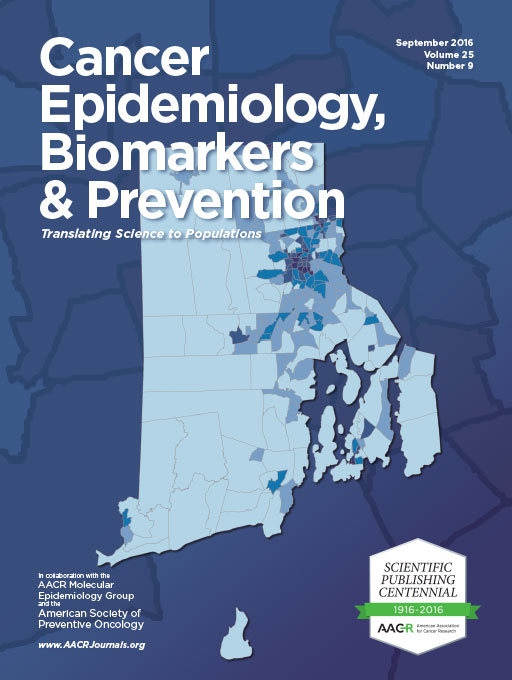
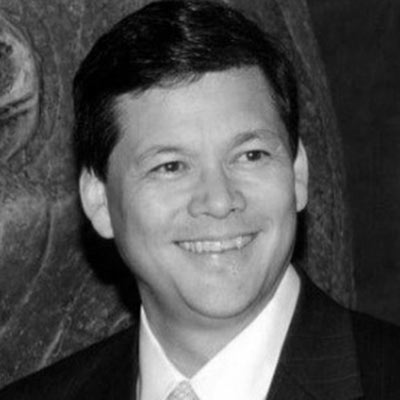
Timothy R. Rebbeck, PhD
Dana-Farber Cancer Institute
Boston, Massachusetts
Cancer Immunology Research
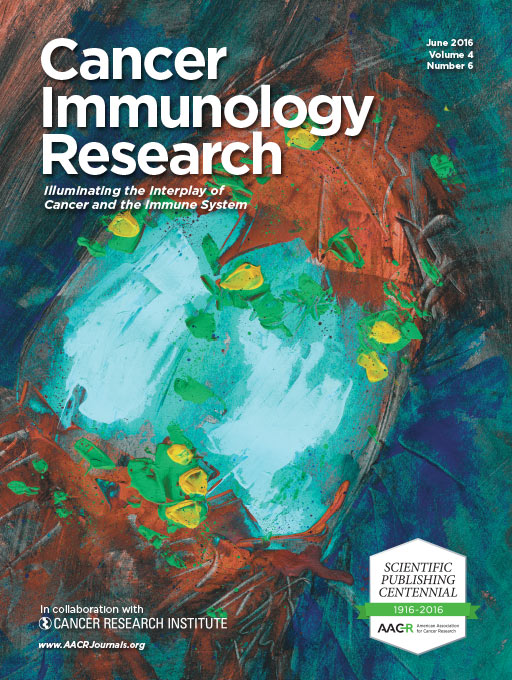
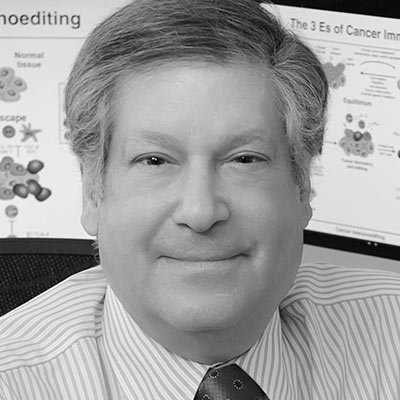
Robert D. Schreiber, PhD
Washington University School of Medicine
St. Louis, Missouri
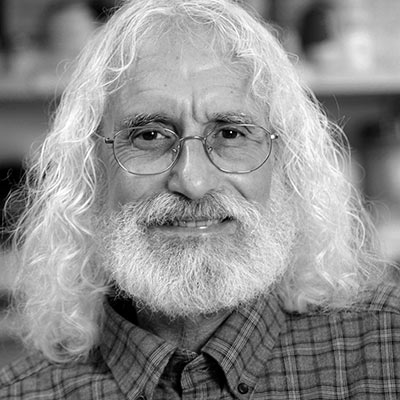
Philip D. Greenberg, MD
Fred Hutchinson Cancer Research Center
Seattle, Washington
Cancer Prevention Research
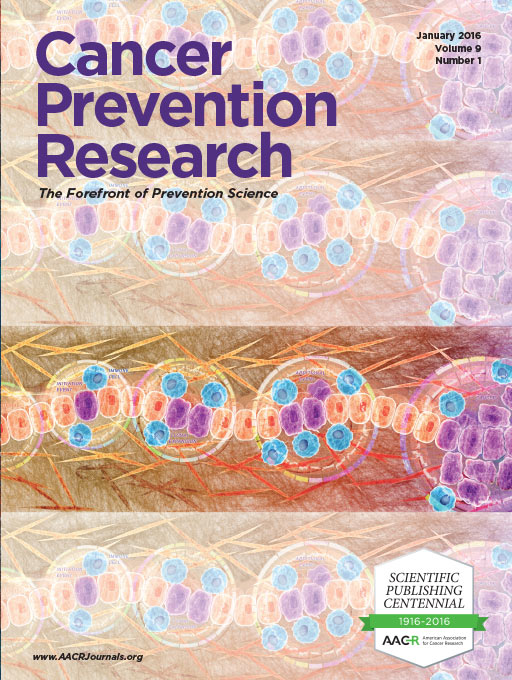

Scott M. Lippman, MD
UC San Diego Moores Cancer Center
San Diego, California
Cancer Research
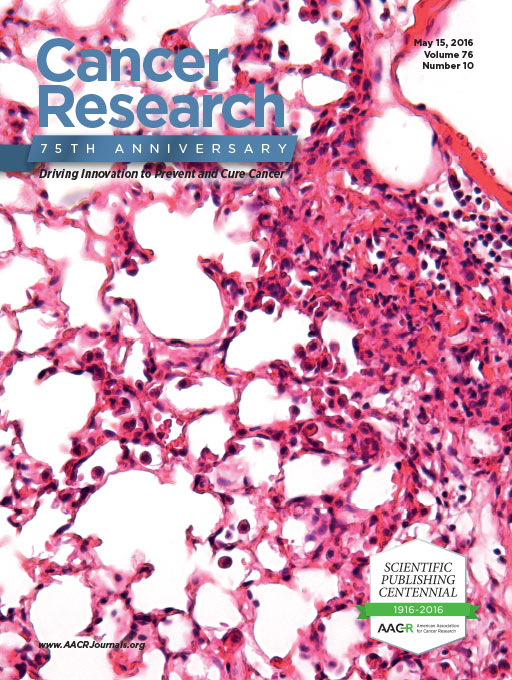

George C. Prendergast, PhD
Lankenau Institute for Medical Research
Wynnewood, Pennsylvania
Clinical Cancer Research
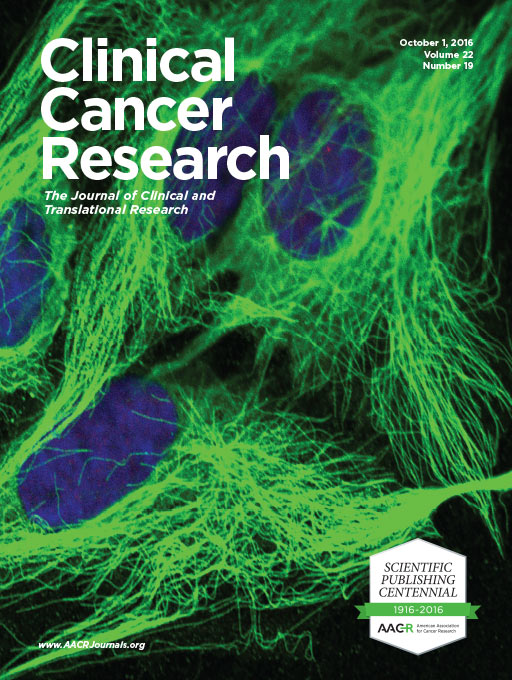

Kenneth C. Anderson, MD, FAACR
Dana-Farber Cancer Institute
Boston, Massachusetts
Molecular Cancer Research
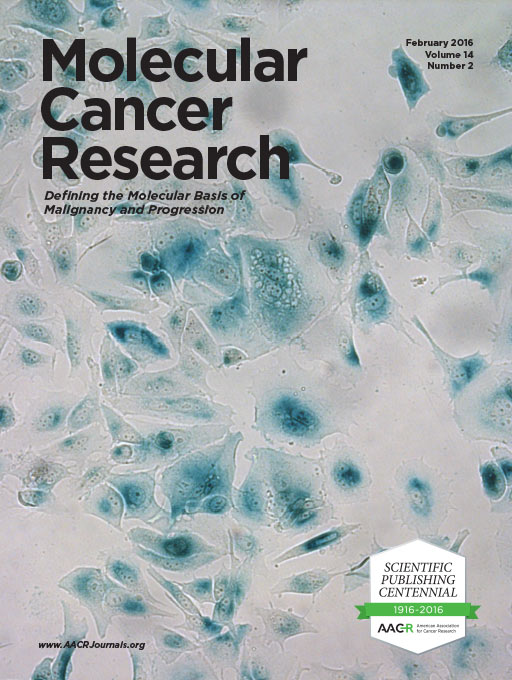

Karen E. Knudsen, PhD
Kimmel Cancer Center
Philadelphia, Pennsylvania
Molecular Cancer Therapeutics
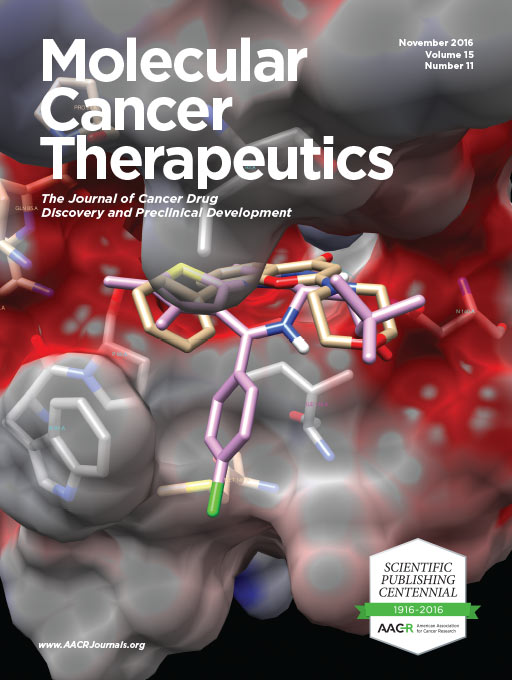

Napoleone Ferrara, MD, FAACR
UC San Diego Moores Cancer Center
San Diego, California